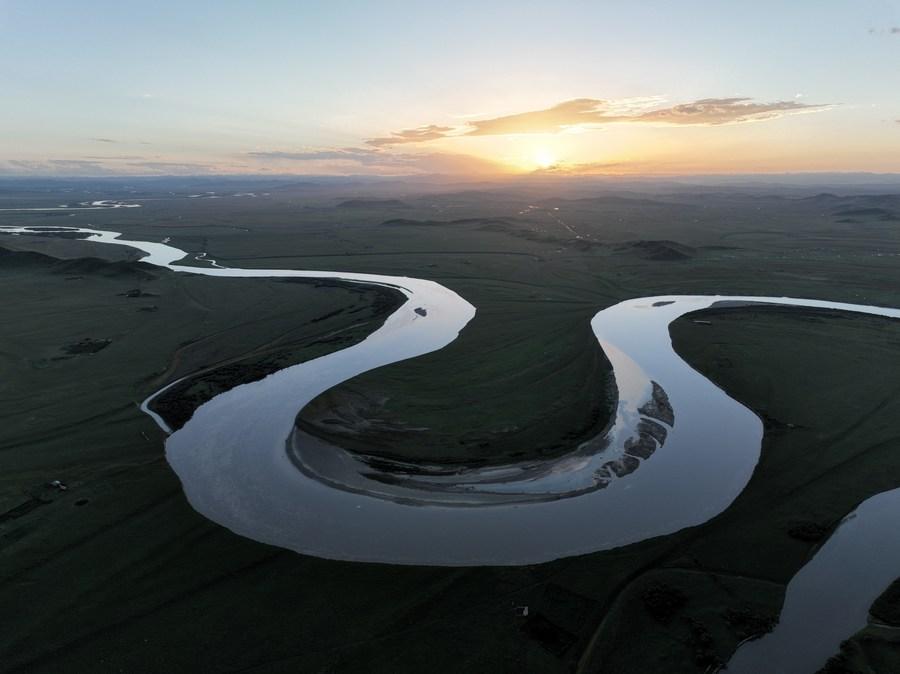Civilizations pledge more protection for great river basins in declaration
 0 Comment(s)
0 Comment(s) Print
Print E-mail China Daily, September 18, 2023
E-mail China Daily, September 18, 2023

This aerial photo taken on Aug. 21, 2023 shows the zigzag watercourse of the Yellow River in Tangke Township, Ruoergai County of Aba Tibetan-Qiang Autonomous Prefecture, southwest China's Sichuan Province. [Photo/Xinhua]
More efforts should be made to protect the cultural heritage of great river basins and respect the characteristics of civilizations born from them, according to a declaration released on Sunday.
The World Great Rivers Civilizations Forum: Zhengzhou Declaration also called for safeguarding the diversity of human civilizations and enhancing mutual learning among civilizations.
It was announced at the 2023 World Great Rivers Civilizations Forum held in Zhengzhou, Henan province. The forum is being attended by more than 300 heritage professionals and diplomatic envoys from China and other countries with great river basins across the world, like the Indus Basin, the Mesopotamian Basin and the Nile Basin.
With the theme "Mutual Learning Among Civilizations, Jointly Building a Shared Future", the two-day forum is organized by the Ministry of Culture and Tourism, People's Daily, the National Cultural Heritage Administration and the Henan Provincial People's Government.
It includes various online and in-person activities such as the main forum, four sub-forums, roundtable dialogues, field trips and cultural performances.
According to Wang Wei, director of the Chinese Academy of Social Sciences' Academic Division of History, rivers are cradles of human civilizations. The world's major ancient civilizations, such as the Chinese, ancient Egyptian, Mesopotamian and Indus Valley, all emerged in great river basins. Rivers nurtured agriculture, and the development of agriculture laid the foundation for the origin, formation and development of civilizations.
Each civilization has followed its unique development path, showing distinctive features and communicating with each other, jointly promoting the development of human civilizations, Wang said. To study these civilizations, we should not only focus on specific regions but also study them within the broader context of world civilizations. This is precisely the reason why the forum is being held, he added.
Xie Bing, deputy director of the National Cultural Heritage Administration, said the Yellow River Basin was a key area in the origin and formation of Chinese civilization.
He introduced a national research project that traced its origins in China, which included studies on a number of sites in the Yellow River Basin, like the Erlitou site in Luoyang, Henan, which existed from the 18th to 16th century BC, and the approximately 4,000-year-old Shimao site in Shenmu, Shaanxi province.
According to Ahmed Badr, head of the Cultural Heritage of Luxor Temple in Egypt, the Nile played a fundamental and key role in the formation of Egyptian culture. He highlighted a joint project by Chinese and Egyptian archaeologists since 2018 to study the Karnak Temple complex by the Nile in Luxor.
"Through our work, the complex is taking off its mysterious veil, and shows a clearer face. It's our joint effort to explore an important cultural treasure," he said.






Go to Forum >>0 Comment(s)